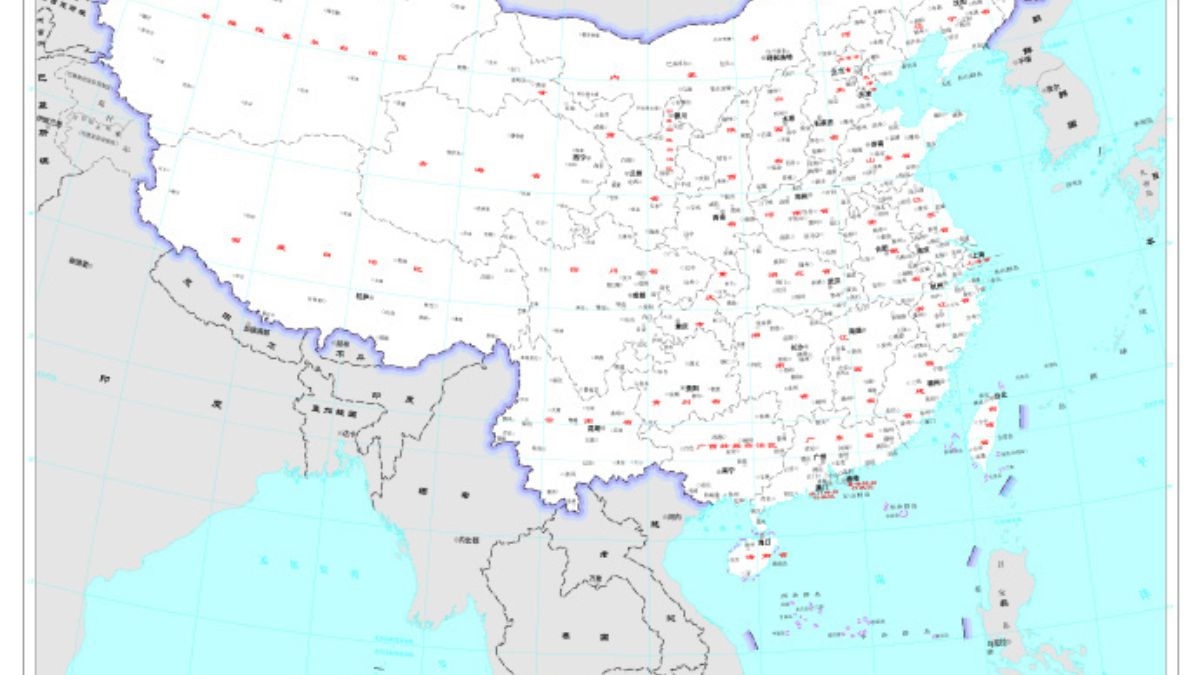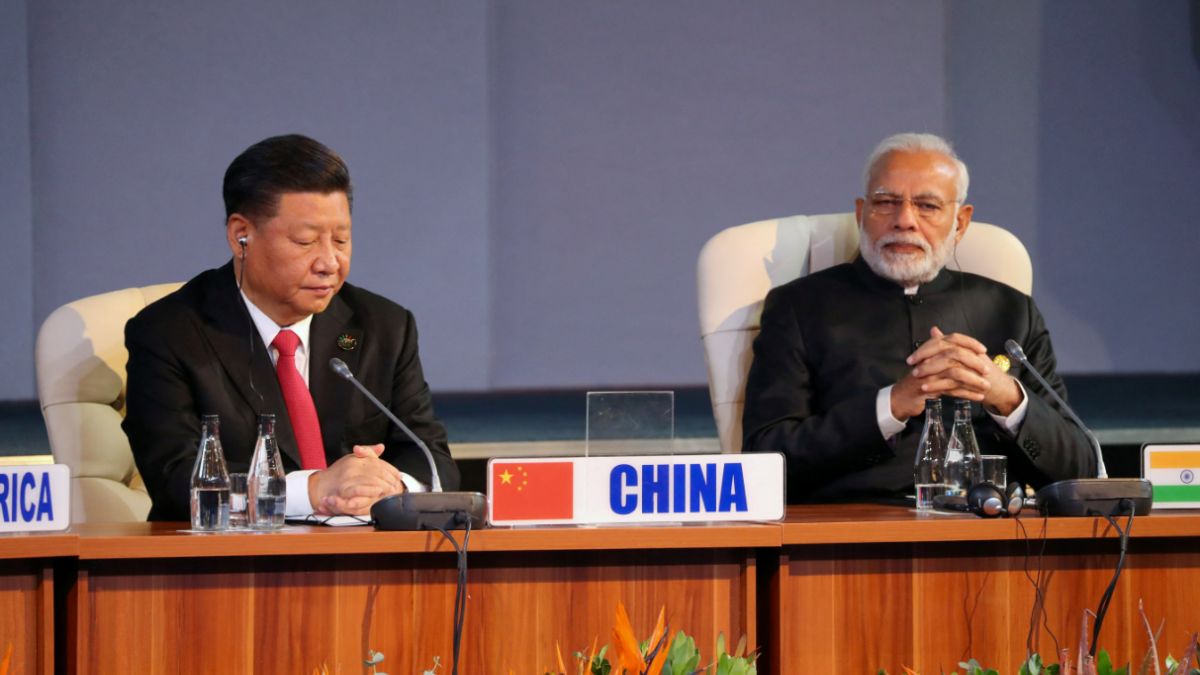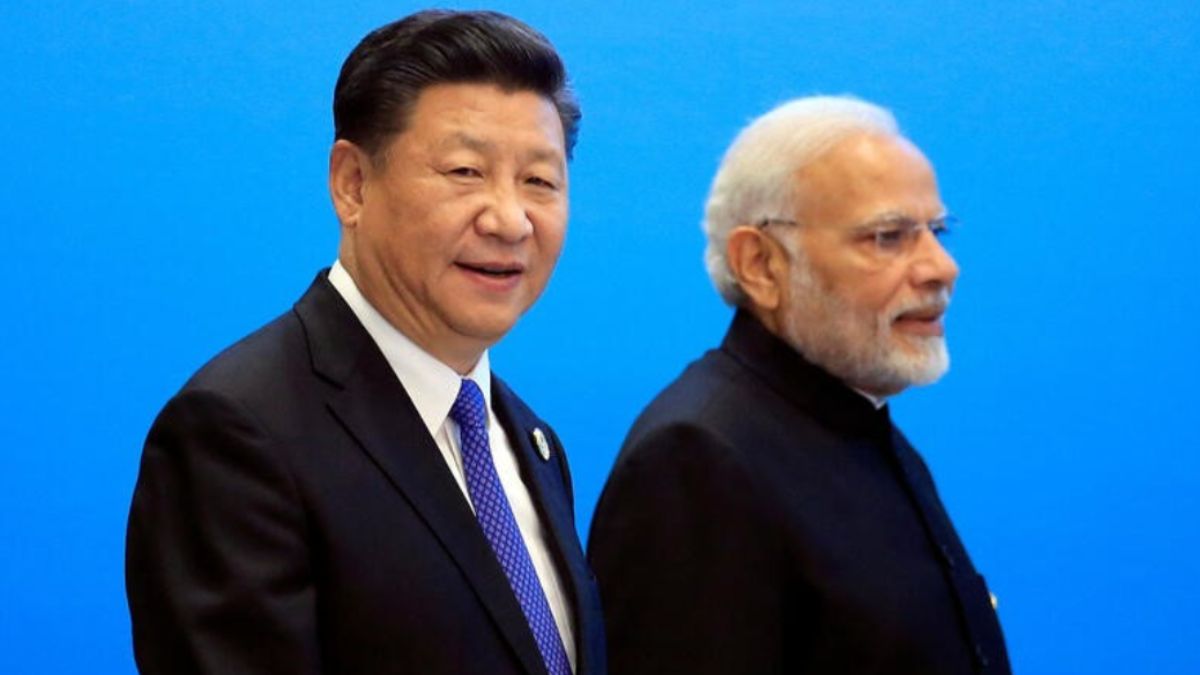- By Sukanya Saha
- Wed, 06 Sep 2023 02:33 PM (IST)
- Source:JND
The meeting between Chinese President Xi and Prime Minister Narendra Modi during the BRICS Summit 2023, which was held in Johannesburg, South Africa, on August 24, was reasonably productive. The leaders instructed their high-level security advisors to work on de-escalation along the Line of Actual Control (LAC), which is seen as a positive step.
However, China, after the summit, unveiled a revised official map on August 28 in which it asserted that the Indian state of Arunachal Pradesh is a part of its territory, referred to as South Tibet. Additionally, China depicted the Aksai Chin region, which it occupied during the 1962 India-China War, as an integral part of China on this map.
External Affairs Minister S. Jaishankar vehemently denied the assertion, emphasising that India has formally expressed its strong objection to the Chinese authorities regarding the 2023 Standard Map of China, which asserts territorial rights over Indian land. He dismissed these claims as groundless and expressed his view that such actions by China only add complexity to the ongoing efforts to resolve the border dispute between the two nations.
Opposition parties joined the government in criticising Beijing's recurrent efforts to stir up disputes over Arunachal Pradesh and the Aksai Chin region. Government sources pointed out that India had consistently clarified its stance on Arunachal Pradesh and Aksai Chin in the past, but China persisted in creating controversies that did not alter the actual situation on the ground.
In an exclusive interview with Jagran English, Ali Wyne, Senior Analyst with geopolitical risk firm Eurasia Group, delved into India's alignment with BRICS' wider objectives, China's release of a new map asserting Arunachal Pradesh as its territory following the BRICS Summit, and its perspective on the burgeoning alliance between India and the US.
China's Map Aggression Ahead Of G20 Summit:
Discussing if it was a calculated move by China to assert dominance in the region and provoke India before the G20, Wyne opined that the border dispute between the two countries has been a long-standing issue. Therefore, the map unveiling is seen as part of a larger pattern rather than a surprising move.

"The broader context involves the Indo-Pacific region, where the Quad is increasing its military presence and cooperation. China perceives the Indo-Pacific as becoming more contested, with the US and its allies prioritising the region. India is deepening its relationships with the US and other Quad members, and China is likely concerned about this trend."
"Both countries seek to exert influence in the region and compete in various aspects, such as technology standards and global leadership among the "Global South."
Does India Worry BRICS Expansion May Favour China's Dominance?
At the BRICS Summit 2023, Prime Minister Modi expressed India's endorsement for the enlargement of the BRICS coalition, comprising Brazil, Russia, India, China, and South Africa. He also emphasised the importance of collectively advancing this expansion with mutual agreement at the BRICS summit 2023.
Also Read: BRICS Expansion A Looming Geopolitical Challenge To G7, Expert Analysis | Exclusive
However, did you know that the talks for expansion had encountered unexpected obstacles at the eleventh hour, putting at risk the endeavour to increase the influence of the "Global South" in global matters.
According to a Reuters report, the leaders were deliberating on the extent and pace of the bloc's potential expansion. In fact, insiders suggested that Prime Minister Narendra Modi was not supportive of a larger alliance and introduced new entry requirements. A Bloomberg report stated that India is apprehensive that an expanded BRICS might turn the group into a platform primarily representing the interests of China.
Bloc heavyweight China has consistently advocated for the enlargement of BRICS, aiming to establish a multipolar global order as a counterbalance to Western dominance. Likewise, Russian President Vladimir Putin is eager to show that he still has friends.
Discussing China's forceful advocate for BRICS expansion, Wyne said that India does not appear to be overly troubled by the expansion itself. India's foreign policy aims to maximise its diplomatic flexibility and avoid becoming too reliant on any single country or alliance.

(Image credit: Reuters)
"India is kind of an exemplar of agile diplomacy. There are very few countries that can say, ‘we have a deepening relationship with the US, but we also have a strong residual relationship with Russia.’ India is also deepening its ties with Israel while sustaining a relationship with Iran," he said.
There is a concern that the expanded BRICS could become dominated by China's interests. Addressing this issue, he said, "India's foreign policy is pragmatic, issue-specific, and omnidirectional. It is expected to continue engaging with BRICS but is also diversifying its diplomatic efforts in forums such like the G20, the Quad (a strategic forum involving India, the US, Japan, and Australia), and regional initiatives.
"India's approach is nimble and responsive to the multiple countries seeking to engage with it due to its growing economic and geopolitical significance. The US is courting it, Saudi Arabia is courting it, Iran is courting it. A growing number of countries in the global south look to India as a champion of its priorities. So, from India's perspective, why tether yourself too rigidly to any one country when you have so many other countries that are courting you?"
How China Perceives India's Growing Friendship With The US?
China views India as its principal rival in the Indo-Pacific region and is concerned about the growing cooperation between India and the US. Additionally, there is a trend of advanced industrial democracies in Europe and the Indo-Pacific coming together due to various geopolitical factors. This trend places pressure on China and challenges its regional and global ambitions.
Discussing China's perspective on the increasing ties between India and the US, Wyne explained that China is attempting to offset this pressure by strengthening its relationships with US adversaries like Russia and Iran, as well as with influential middle powers. It is also expanding its economic influence in the developing world. However, the coalescence of advanced industrial democracies limits China's long-term regional and global ambitions.
"The US-India relationship is considered crucial in the Indo-Pacific context, with India being a linchpin in the region. Several advanced industrial democracies, including Canada, France, and Germany, have revealed their Indo-Pacific strategies with India as a central focus. While India faces internal challenges and may not always align perfectly with the US on every issue, the overall bilateral relationship is deepening and is expected to play a significant role in the evolving geopolitical landscape," he said.

